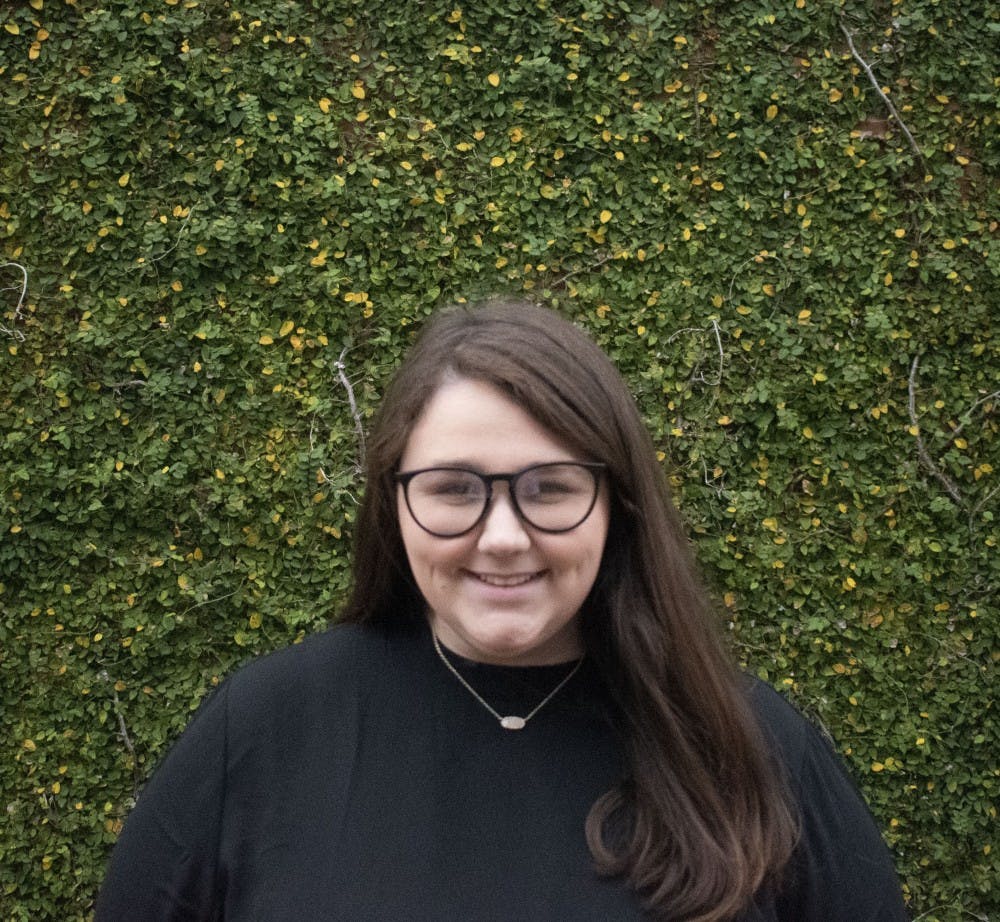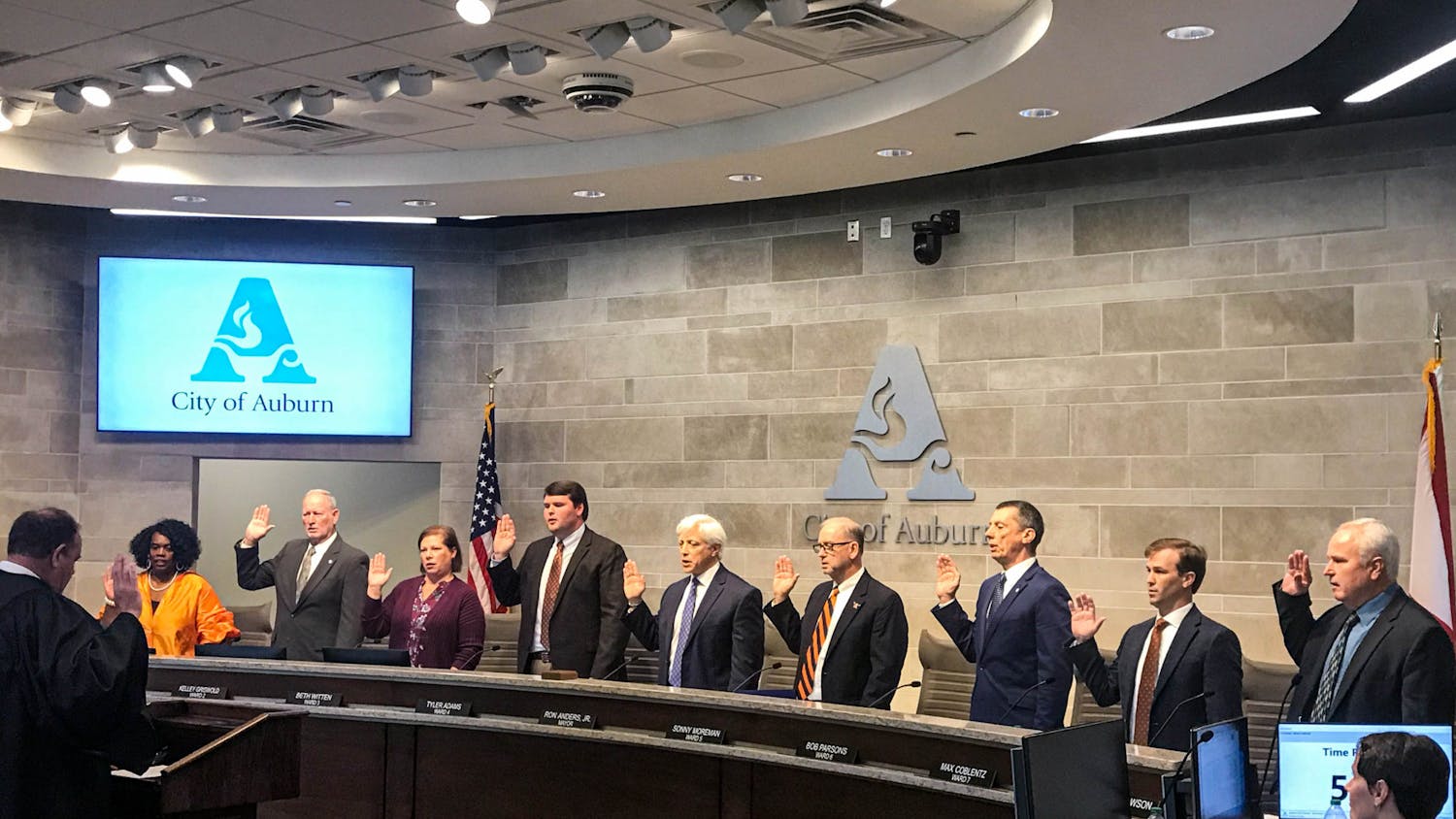Hungry students do not always look hungry. On Auburn’s campus, hunger does not look any particular way.
Auburn’s chapter of The Campus Kitchen holds Auburn Family Meals each Friday, where students who are food insecure can come and take up to four free meals. The group’s goal is to destigmatize hunger and what hunger looks like, as well as provide nutritious, balanced meals for Auburn students in need.
The Auburn Family Meals take place in the basement of Toomer Hall in the Hill at 11:30 a.m. every Friday and last until 1 p.m. Students walk in and are greeted by the President of the group Hallie Nelson and Vice President Kenzley Defler.
Once they give their email to Nelson for data purposes, the students are free to walk to the kitchen and, with the help of a volunteer, select up to four meals that are prepackaged and labeled. From there, they are free to continue on their way.
The Campus Kitchen strives to give students meals that meet nutrition standards, including dietary restrictions. Students can choose between veggie and meat meals, and each meat meal is labeled for consideration of students from different backgrounds.
When walking into The Campus Kitchen area, students are often found with smiles on their faces laughing with each other.
Nelson and Defler agreed that student hunger does not always look like what people would imagine.
“The problem is that students are having to choose between paying rent and food,” Defler said. “Hunger doesn’t mean they’re starving. It means they’re having to sacrifice food for other necessities.”
The Campus Kitchen has been around for around six or seven years and has served over 10,000 meals. Originally starting with graduate students at the University, Auburn Family Meals was born last Spring semester to include undergraduates.
“A hunger study class at Auburn found that 30 percent of Auburn students were food insecure,” Defler said. “Because of that, we decided to expand.”
Defler said she began volunteering for The Campus Kitchen at Auburn a couple years ago and quickly became a shift leader. Though she did not expect to fall in love with this project, she did.
Most Fridays, a group of graduate students from the College of Forestry and Wildlife Sciences come in together to stock up for the coming week. They share bags for their meals and are focused on sustainability, similar to Nelson and Delfer.
Ellary Tuckerwilliams made her way into The Campus Kitchen like on most Fridays with her fellow graduate students, donning a flower crown she made herself and cracking jokes. As a graduate student, she only gets paid once a month and is thankful for The Campus Kitchen for helping her with meals.
“I like [Auburn Family Meals] because it means less money and just makes my groceries last longer,” Tuckerwilliams said. “As grad students, we don’t get paid very much, and however long we can make that last is helpful.”
As for the meals, Tuckerwilliams and fellow graduate student, Alex Lewis, said they are relatively good and filling, but sometimes they are worried about the fridge life of the food. They said most meals they receive are good and last them a few days.
“There was this Mediterranean meal one day with couscous,” Tuckerwilliams said. “It was awesome. It’s good quality stuff, it just depends on what’s available that day.”
Defler said The Campus Kitchen strives to stop food waste at the University, and with help from restaurants and dining halls on campus, they can provide enough food for the students that come in on Fridays and help with food insecurity around the city.
Feeding around 40 to 80 students a week and hundreds of others with their community outreach, The Campus Kitchen relies on dining halls and restaurants at Auburn to get the food they use to assemble the meals.
Because of this, food donated to The Campus Kitchen are leftovers, and the volunteers work hard to make sure everything is nutritious for those in need. The Campus Kitchen utilizes all donations they can and have begun picking up from a few fraternity houses since many have chefs that cook for them.
“It’s really important, with food insecurity, to destigmatize it and the stereotypes that go along with it,” Defler said. “We are trying to open [Auburn Family Meals] to be more like a community. We just bought a microwave and reusable dishes. We are encouraging people to sit down with us and come together as a group when they get their meals.”
Defler said they want to “break the barriers” and see that we all need a more community feel.
The Campus Kitchen receives funds from the national branch and other donation sites for day-to-day expenses that cover the containers they package food in and the reusable containers they use to collect the food.
Defler and Nelson said they always welcome feedback from the students who attend Auburn Family Meals, so they can make the meals even more enjoyable.
“I would personally really like it if the containers they use, if there was some way that they could reuse them or become more sustainable,” said Sara Bolds, a graduate student in the College of Forestry and Wildlife Sciences. “I feel like a lot of people just throw them away, and that’s just so much plastic.”
Defler and Nelson said they cannot reuse the containers they currently use because they cannot be sent a sanitizer, but they will begin looking into sustainable alternatives.
Lewis said she recycles the containers on her own and uses them to package food on other occasions and encourages others to do so as well.
When collecting meals, students are given or can bring reusable bags to transport them. The Campus Kitchen also provides some for students to use.
Going to the Auburn Family Meals does not label students as anything. The ongoing joke that college students struggle to obtain food is not just a joke – it is a true struggle for one-third of Auburn students.
Defler said her life was changed forever by taking the step of joining The Campus Kitchen. She said helping others is being apart of Auburn, and food insecurity is a growing issue in college campuses.
“They’re not alone,” Defler said.
Do you like this story? The Plainsman doesn't accept money from tuition or student fees, and we don't charge a subscription fee. But you can donate to support The Plainsman.

Mikayla Burns, senior in journalism and Spanish, is managing editor of The Auburn Plainsman.



